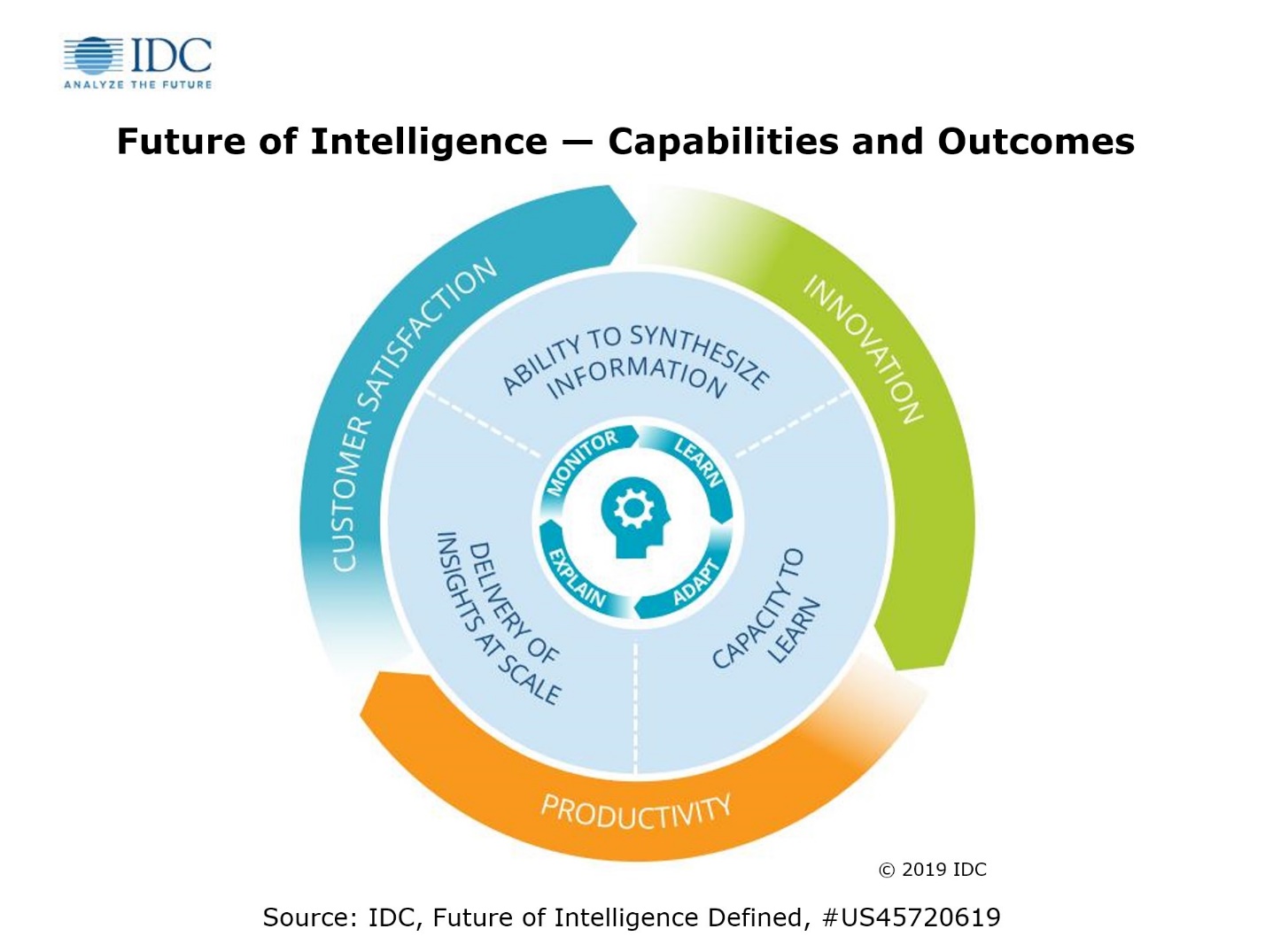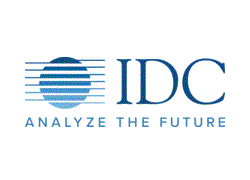Over the past five years, International Data Corporation (IDC) has been documenting the rise of the digital economy and the digital transformation that enterprises must undergo to compete and succeed.
Greater enterprise intelligence has become a top priority for business leaders on this transformation journey. By working with and observing such enterprises, IDC has developed a new Future of Intelligence framework, which provides insight and understanding for business leaders and technology suppliers.
IDC defines the future of intelligence as an organisation’s capacity to learn, combined with its ability to synthesise the information it needs in order to learn and to apply the resulting insights at scale. The ability to continuously learn at scale – and apply that learning across the entire organisation instead of in silos at a faster rate than the competition – is the crucial differentiator that will separate those with greater enterprise intelligence enterprises from their peers.

The capabilities needed in the drive towards the future of intelligence will depend on a platform that enables ongoing explanation, monitoring, learning, and adaptation that will drive economies of intelligence.
IDC predicts that over the next four to five years, enterprises that invest in future of intelligence capabilities effectively will experience a 100% increase in knowledge worker productivity, resulting in shorter reaction times, increased product innovation, and improved customer satisfaction, in turn leading to sustainable market share leadership (or achievement of their mission) in their industry. These enterprises will be able to:
- Execute their responses to customers, competitors, regulators, and partners in half the time of their peers — often by anticipating situations in advance.
- Increase their success rate of new product introduction by 25%.
- Expand their scope by offering a wider variety of experiences and increase their Net Promoter Scores at a rate 1.5 times as fast as their competitors.
“In 2019, enterprises globally spent $190 billion (€1713 billion) on data management, analytics, and AI technologies and services — not even including labor costs or purchases of external data. How much of that spending generated intelligence and how much of that investment generated value are questions many executives are unable to answer,” said Dan Vesset, group vice president, Analytics and Information Management and IDC’s Future of Intelligence research practice lead. “Enterprises that achieve economy of intelligence will have a competitive advantage just as those enterprises in the past that achieved economies of scale and scope had an advantage over their peers.”
To learn more about IDC’s views on the future of intelligence, and the three key capabilities enterprises must cultivate to become truly intelligent, read Dan Vesset’s new blog post.
The IDC report, Future of Intelligence Defined, discusses the future of intelligence and highlights the three key capabilities needed to drive value from information and set the stage for a deeper evaluation of practices enterprises have embarked on to raise their collective intelligence quotient.
Comment on this article below or via Twitter: @VanillaPlus OR @jcvplus






